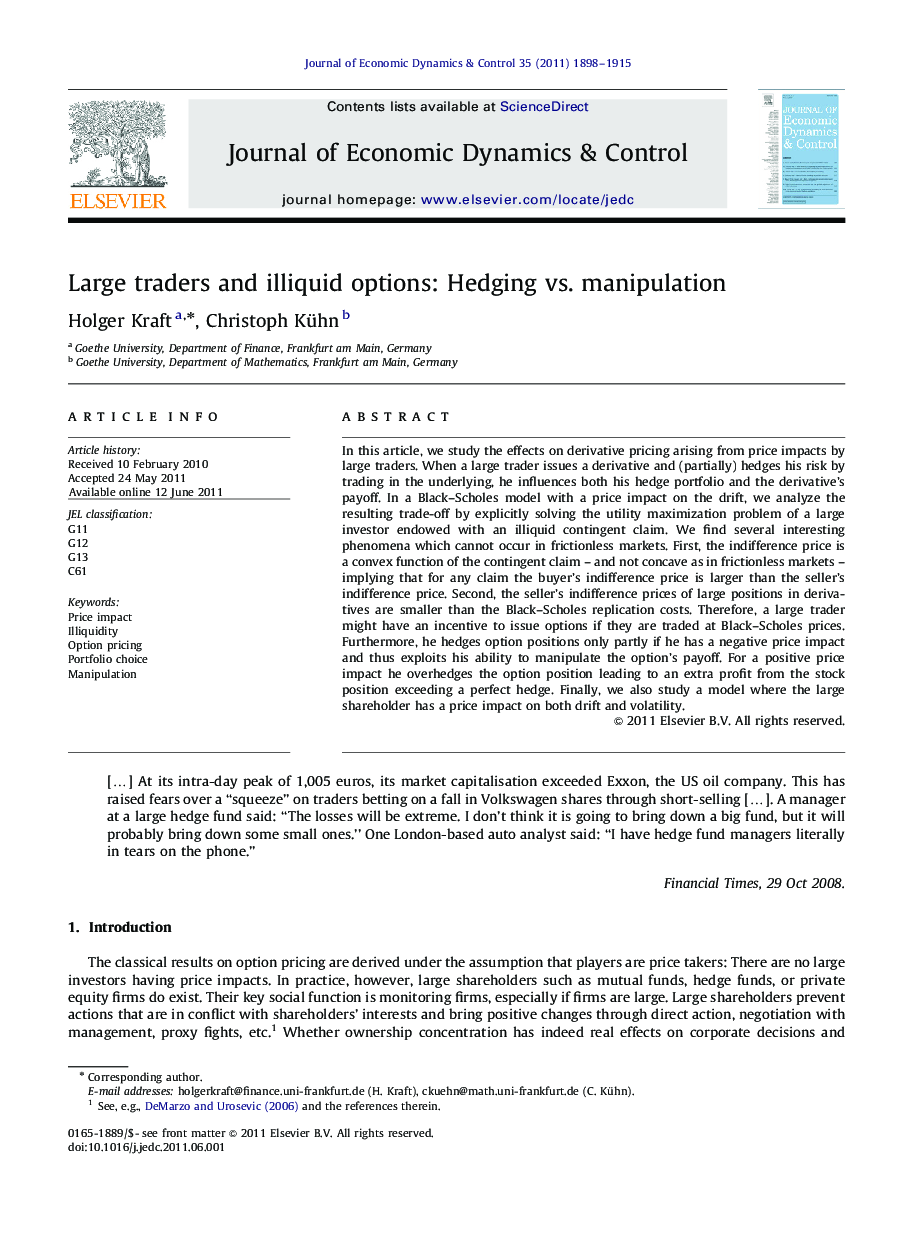| Article ID | Journal | Published Year | Pages | File Type |
|---|---|---|---|---|
| 5099373 | Journal of Economic Dynamics and Control | 2011 | 18 Pages |
Abstract
In this article, we study the effects on derivative pricing arising from price impacts by large traders. When a large trader issues a derivative and (partially) hedges his risk by trading in the underlying, he influences both his hedge portfolio and the derivative's payoff. In a Black-Scholes model with a price impact on the drift, we analyze the resulting trade-off by explicitly solving the utility maximization problem of a large investor endowed with an illiquid contingent claim. We find several interesting phenomena which cannot occur in frictionless markets. First, the indifference price is a convex function of the contingent claim - and not concave as in frictionless markets - implying that for any claim the buyer's indifference price is larger than the seller's indifference price. Second, the seller's indifference prices of large positions in derivatives are smaller than the Black-Scholes replication costs. Therefore, a large trader might have an incentive to issue options if they are traded at Black-Scholes prices. Furthermore, he hedges option positions only partly if he has a negative price impact and thus exploits his ability to manipulate the option's payoff. For a positive price impact he overhedges the option position leading to an extra profit from the stock position exceeding a perfect hedge. Finally, we also study a model where the large shareholder has a price impact on both drift and volatility.
Related Topics
Physical Sciences and Engineering
Mathematics
Control and Optimization
Authors
Holger Kraft, Christoph Kühn,
